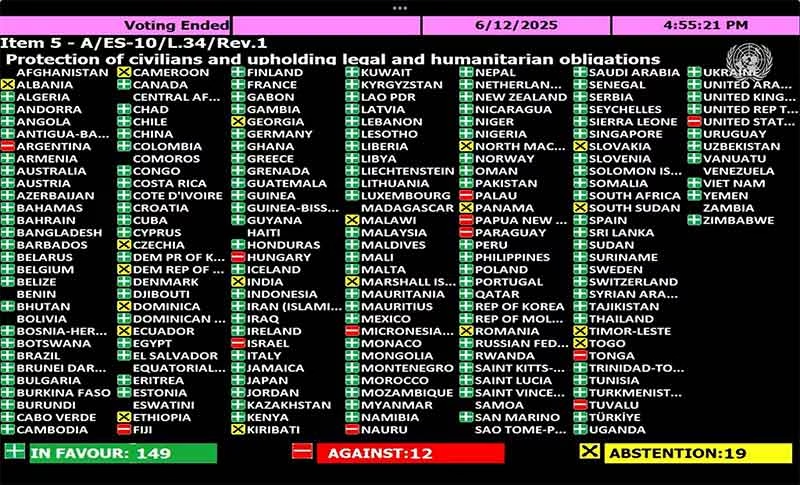
A Public Interest Litigation (PIL) has been filed in the Allahabad High Court challenging two government orders mandating summer workshops on Ramayana and Vedas in schools across Uttar Pradesh. The petition was filed by Dr. Chaturanan Ojha, a socially conscious citizen and academic through Adv Rakesh Kumar Gupta , is not only aimed at safeguarding constitutional values but also at ensuring that our education system remains inclusive, secular, and scientific.
What is the Case About?
On May 5, 2025, the International Ramayana and Vedic Research Institute, Ayodhya (Culture Department, Uttar Pradesh), issued an order directing all District Basic Education Officers in the state’s 75 districts to organize summer workshops on Ramayana and Vedas in public schools. These workshops include activities such as Ramleela, recitation and singing of Ramcharitmanas, painting, clay modeling, mask-making, and Vedic chanting, with a duration of 5 to 10 days. Subsequently, on May 8, 2025, the District Basic Education Officer of Maharajganj issued a follow-up order, instructing all Block Education Officers to ensure managerial support for these workshops.
These orders not only violate constitutional principles but also risk promoting caste and gender discrimination, weakening secularism, and undermining the scientific temper.
Why is This Petition Necessary?
This petition has been filed to protect the interests of millions of students in Uttar Pradesh. The orders are unconstitutional and harmful to society for the following reasons:
• Violation of Secularism:
The Constitution of India recognizes secularism as a fundamental feature (S.R. Bommai v. Union of India, 1994). Mandating Ramcharitmanas and Vedas, which are Hindu religious texts, in public schools promotes a specific religion. This violates Article 28(1) of the Constitution, which prohibits religious instruction in state-run schools. In Aruna Roy v. Union of India (2002), the Supreme Court clarified that while comparative study of religions in a secular context is permissible, promoting a single religion’s text is unconstitutional.
• Caste and Gender Discrimination:
Certain verses in Ramcharitmanas, such as “Dhol, gawar, shudra, pashu, nari, ye sab tadan ke adhikari” (Sunderkand, 58.3) and “Nari swatantra na bhave, pati bina dukh pave” (Ayodhyakand, 60), demean Shudras and women. These verses contradict Article 14 (equality before the law), Article 15 (prohibition of discrimination), and Article 17 (abolition of untouchability) of the Constitution. Promoting such texts in schools not only violates the rights of Scheduled Castes and women but also undermines social equality.
• Attack on Scientific Temper:
Article 51A(h) of the Constitution imposes a duty on every citizen to promote scientific temper, humanism, and the spirit of inquiry and reform. Prioritizing religious and mythological texts like Ramayana and Vedas weakens rational thinking and scientific inquiry. In Santosh Kumar v. Secretary, Ministry of Human Resource Development (1994), the Supreme Court stated that education must promote a scientific and rational outlook, not religious superstition.
• Administrative Impropriety:
The issuance of orders by an institute under the Culture Department directly to officials of the Education Department violates administrative protocols. In U.P. Gangadharan v. State of Kerala (2006), the Supreme Court emphasized that administrative actions must follow established protocols. This order, issued without consultation with the Education Department, is illegal and arbitrary.
• Violation of Minority Rights:
Articles 29 and 30 grant minorities the right to preserve their culture and educational autonomy. Mandating Ramcharitmanas imposes a Hindu-centric culture on students from Muslim, Christian, Sikh, and other minority communities, violating their cultural and religious rights (St. Xavier’s College v. State of Gujarat, 1974).
• Misuse of Public Funds:
Article 27 prohibits the use of taxpayer money to promote any particular religion. The use of public funds for these workshops, such as for teacher training and materials, promotes Hindu religious values, which is against the ruling in Prafull Goradia v. Union of India (2011).
• Lack of Constitutional Morality:
In Indian Young Lawyers Association v. State of Kerala (2018), the Supreme Court defined constitutional morality as adherence to principles of equality, liberty, and justice. Promoting the caste and gender hierarchies of Ramcharitmanas contradicts these values.
Significance of This Petition
This petition is not merely a legal challenge but an effort to protect the future of our society. Millions of students in Uttar Pradesh, including those from Hindu, Muslim, Christian, Sikh, Scheduled Caste, and other communities, attend public schools. These orders risk deepening social divisions and undermining the constitutional goal of making education secular and inclusive.
The petition seeks the following reliefs:
• Quashing of the orders dated May 5 and May 8, 2025.
• Directing authorities to refrain from promoting specific religious texts in schools.
• Ensuring that education remains inclusive, secular, and scientific.
The Future of Our Education
The purpose of our education system should be to foster scientific thinking, equality, and respect for diversity among children. Mandating texts like Ramcharitmanas and Vedas not only goes against constitutional values but may also perpetuate caste and gender inequalities in society. Our younger generation needs an education that makes them rational, inclusive, and progressive, not one that promotes religious or social divisions.
What Can You Do?
This petition is for all of us. If you believe that education should be secular, inclusive, and scientific, spread awareness about this issue. Share the importance of this petition within your community, on social media, and among your acquaintances. Our Constitution grants us the rights to equality and freedom, and it is our duty to protect these rights.
Conclusion
This Public Interest Litigation is not just a legal battle but an endeavor to shape the future of our society. Our education system must be free from discrimination based on religion, caste, or gender. Let us work together for an India that truly embraces the constitutional values of equality, liberty, and secularism.
Subscribe to Our Newsletter
Get the latest CounterCurrents updates delivered straight to your inbox.
Note: This article is written to educate the public and raise awareness. It is not directed against any community or religion but is aimed at protecting constitutional values and the inclusivity of education.

















































